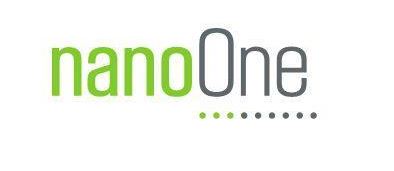- COP26 spotlights a significant green energy start for the global market.
- Once-in-a-generation chance to create and differentiate North American supply chain.
- Nano One shifts LFP effort from China and Pulead to opportunities outside of China.
- The one-Pot process reduces the cost and environmental impact of the battery metal supply chain.
- Nano One joins Accelerate, Canada’s zero-emission vehicle (ZEV) supply chain alliance.
Nano One® Materials Corp. (Nano One), a clean technology company with patented processes for the low-cost, low-environmental footprint production of high-performance cathode materials used in lithium-ion batteries. Mr. Dan Blondal, Nano One’s CEO, is pleased to provide his view on COP26, currently taking place in Glasgow, Scotland, and an update on the Company’s lithium iron phosphate (LFP) strategic direction as it relates to reducing the cost and environmental impact of the battery metal supply chains in North America and Europe.
“Nano One commends global leaders at COP26 for renewing and energizing their commitment to tackle climate change and the 1.5oC goal,” said Nano One CEO, Mr. Dan Blondal. “The world needs clear and firm policies focused on responsibly sourced critical minerals, renewable green energy, resilient and sustainable battery supply chains, R&D and STEM education for the workforce. Nano One is committed to creating jobs and a clean energy economy locally and with those nations collaborating and actively participating in COP26.”
As the transition to clean energy and battery electric vehicles unfolds, there is a once-in-a-generation opportunity to create a secure and cost-competitive supply chain that is domestically integrated with a low environmental footprint. In response, Nano One is shifting its LFP strategic direction to large emerging markets outside of China, starting in North America, and has ceased joint development activities with Pulead Technology Industry.
Nano One’s patented One-Pot process and metal-direct-to-cathode technology (M2CAM) facilitate the production of LFP, nickel-rich (NMC), and manganese-rich (LNMO) lithium-ion battery cathode materials directly from low-cost and low-GHG intensity battery metals. The One-Pot process can leverage battery metal feedstocks that are available domestically without requiring the addition of costly refining infrastructure, and this removes barriers to adoption while eliminating complexity and environmentally wasteful steps common to offshore supply chains.
“If we are to build a fully integrated and resilient battery supply chain here in North America,” said Nano One CEO, Mr. Dan Blondal, “it must include responsible mining of battery metals, onshore refining, environmentally favorable cathode material production, and recycling. If we are to avoid the export of raw materials and technology to overseas markets, only to buy them back in value-added batteries, then we must leapfrog and make redundant the wasteful, constrained, and costly methods of making battery cathode materials that are entrenched in overseas supply chains.”
LFP production is free from the constraints of nickel and cobalt, and although its origins are deeply rooted in Canada, its growth over the last decade is almost entirely based in China. Recent LFP cell-to-pack innovations have driven costs down and enabled greater EV range, setting the stage for EV pioneers to shift to LFP as supported by several recent announcements. There has never been a greater imperative for a sustainable, responsible, and secure supply of LFP materials and batteries, to be established and supported in North America and Europe, proximal to where the EV’s are manufactured.
Mr. Blondal commented, “Canada has clean energy assets, responsibly sourced critical minerals, and a rich history in LFP technology and manufacturing. By leveraging these opportunities with Nano One’s simplified low-cost approach to cathode production, we seek to create a resilient value-added domestic LFP supply chain in a collaborative ecosystem with a smaller environmental footprint. Our investments in the lab, pilot, and alternative feedstocks have added further value to our One-Pot technology, and this enables us to move quickly now that the North American opportunity is coming into focus. We look forward to sharing further advancements with our shareholders.”
Nano One is also pleased to announce it has become a member of Accelerate, Canada’s zero-emission vehicle supply chain alliance. Launched in 2021, Accelerate is working with its members across the supply chain to create an industrial road map to ensure the growth and stability of Canada’s zero-emission vehicle market.
“Accelerate members, like Nano One, are crucial to ensuring Canada transitions from its industrial past to its industrial future,” said Matthew Fortier, Accelerate CEO. “This week’s progress at COP26 is another step towards securing a Canadian supply chain that will help produce a cleaner, more prosperous, more inclusive, and more sustainable Canadian auto industry.”











